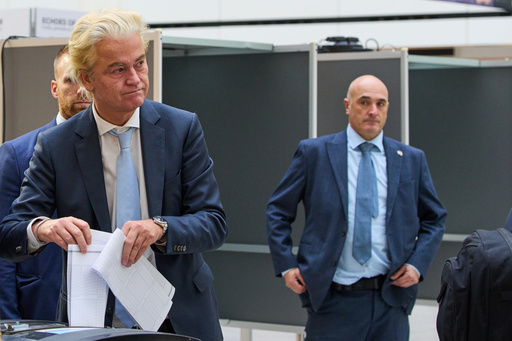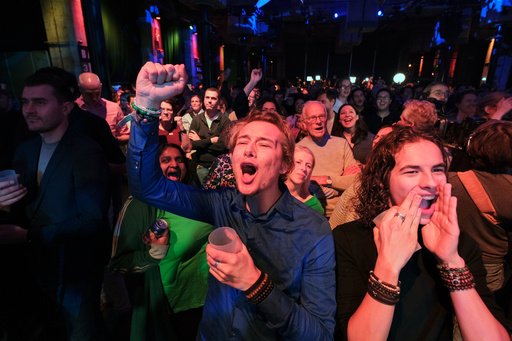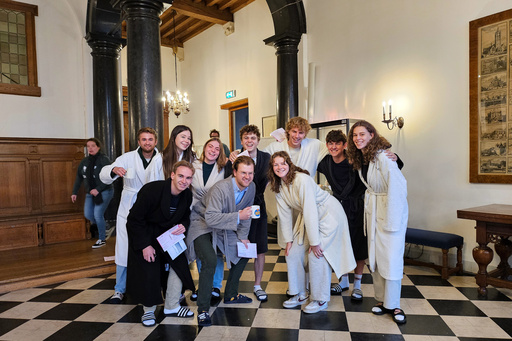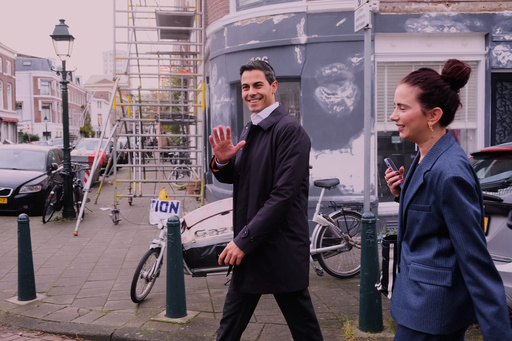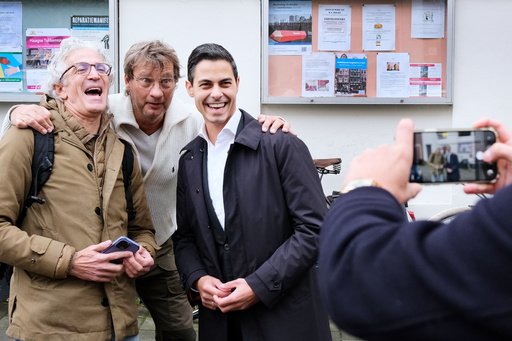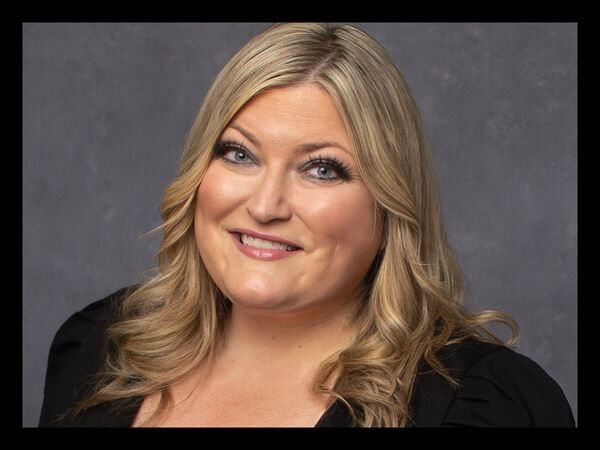Exit poll suggests Dutch election result too close to call, with center-left party slightly ahead
News > National News

Audio By Carbonatix
9:20 PM on Tuesday, October 28
By MIKE CORDER and MOLLY QUELL
THE HAGUE, Netherlands (AP) — An exit poll published immediately after voting ended Wednesday in the Netherlands’ general election suggested the result was too close to call, with the center-left D66 narrowly ahead of the far-right party of anti-Islam lawmaker Geert Wilders and tough coalition talks likely to follow.
The poll showed that D66 would win 27 seats, a rise of 18 compared to the 2023 election. Wilders’ Party for Freedom would lose 12 seats to finish at 25 seats, according to the poll published by national broadcaster NOS. Final official results are likely to take hours.
Wilders remained defiant, saying his party could still be the largest when official results are tallied. But he conceded his party had a disappointing election compared to D66 and its leader Rob Jetten.
“Today is a day of results, and we lost and Mr. Jetten won, so he deserves congratulations too,” Wilders told reporters in parliament.
If confirmed, the result would be a momentous win for D66 and could lead to a shift in government back toward the center for the Netherlands after a far-right government led by Wilders' party after the last election.
“D66 has been in existence for 59 years and if the exit poll is right this would be the biggest victory in the history of D66,” lawmaker Jan Paternotte told national broadcaster NOS.
If D66 has indeed won the most seats, the party will be in the driving seat to lead negotiations to form a new coalition and Jetten could become the Netherlands' first openly gay prime minister.
Mainstream parties including D66 have ruled that out joining Wilders' party in a coalition, arguing that his decision to torpedo the outgoing four-party coalition in June in a dispute over migration underscored that he is an untrustworthy partner.
Cobbling together a coalition that can command a majority in the 150-seat House of Representatives will be difficult in a parliament divided between left and right. While Wilders' party lost seats, another hard right party, Ja21, grew from one seat to nine.
Pollster IPSOS says that the exit poll was conducted at 65 polling stations and around 80,000 voters, using a method that in past Dutch elections has produced estimates very close to the final results. A later update of the exit poll reflecting the last votes remained unchanged.
Wilders’ Party for Freedom easily won the last election in 2023, taking 37 of the 150 seats in the House of Representatives. but has lost support since forming and then bringing down a four-party coalition that was notorious for in-fighting and which did not manage to agree on a tough package of measures to rein in migration to the Netherlands.
In a tweet, Wilders said “we had hoped for another result,” but added: “We are more combative than ever and still the second and perhaps the biggest party in the Netherlands.”
Unlike all the other parties, Wilders did not organize an election night party.
The right-wing People's Party for Freedom and Democracy was third in the exit poll on 23 seats, one seat less than it won in 2023. The center-left combination of Green Left and the Labor Party lost five seats to end on 20 and leader Frans Timmermans, a former vice president of the European Commission, immediately quit.
“It is time for me to take a step back and give the leadership ... to the next generation,” Timmermans said.
The Christian Democrats were big winners, gaining 14 seats to end on 19, according to the poll.
“What a fantastic result. We wouldn’t have dared to dream of this two years ago,” said party leader Henri Bontenbal.
The campaign echoed issues that resonate across Europe, focusing on how to rein in migration and tackle chronic shortages of affordable housing.
The vote came against a backdrop of deep polarization in this nation of 18 million, violence at a recent anti-immigration rally in The Hague and protests against new asylum-seeker centers.
Olga van der Brandt, 32, said she thought voters would turn their backs on parties that made up the last right-wing government led by Wilders. Her hope was that “this time there will be a more progressive party who can take the lead.”
Christian Democrats leader Henri Bontenbal agreed that a fundamental shift in Dutch politics was at stake.
“What we have seen in the last two years is a political landscape with right-wing populism, and the question is, is it possible to beat populism by decent politics,” he said.
In-fighting between parties in the last coalition led to criticism that the Netherlands, long a prominent voice within the European Union, was sometimes seen as not fully engaging with the continent as it had done under longtime leader Mark Rutte, who is now NATO's secretary-general.
The chief economist at the Center for European Reform think tank, Sander Tordoir, said that “Europe cannot afford another Dutch government that drifts and is absent in the European debate.”
Tordoir noted that the Netherlands is one of the biggest and better performing eurozone economies and that if it “remains missing in action, Europe’s single market, defense effort and economic security will suffer.”
Voting was taking place at venues from city halls to schools, as well as in historic windmills, churches, a zoo, a former prison in Arnhem and the iconic Anne Frank House museum in Amsterdam.
Among those first in line at the ornate former City Hall in the central city of Delft, wearing bathrobes and carrying mugs of coffee, was a group of students who live together and study at the local university.
“It’s a house tradition” to vote together, Lucas van Krimpen told The Associated Press.
The Dutch system of proportional representation all but guarantees that no single party can win a majority. Negotiations will likely begin Thursday into the makeup of the next governing coalition.
___
Associated Press writer Lorne Cook in Brussels contributed to this report. Kriti Swarup contributed from Amsterdam.
